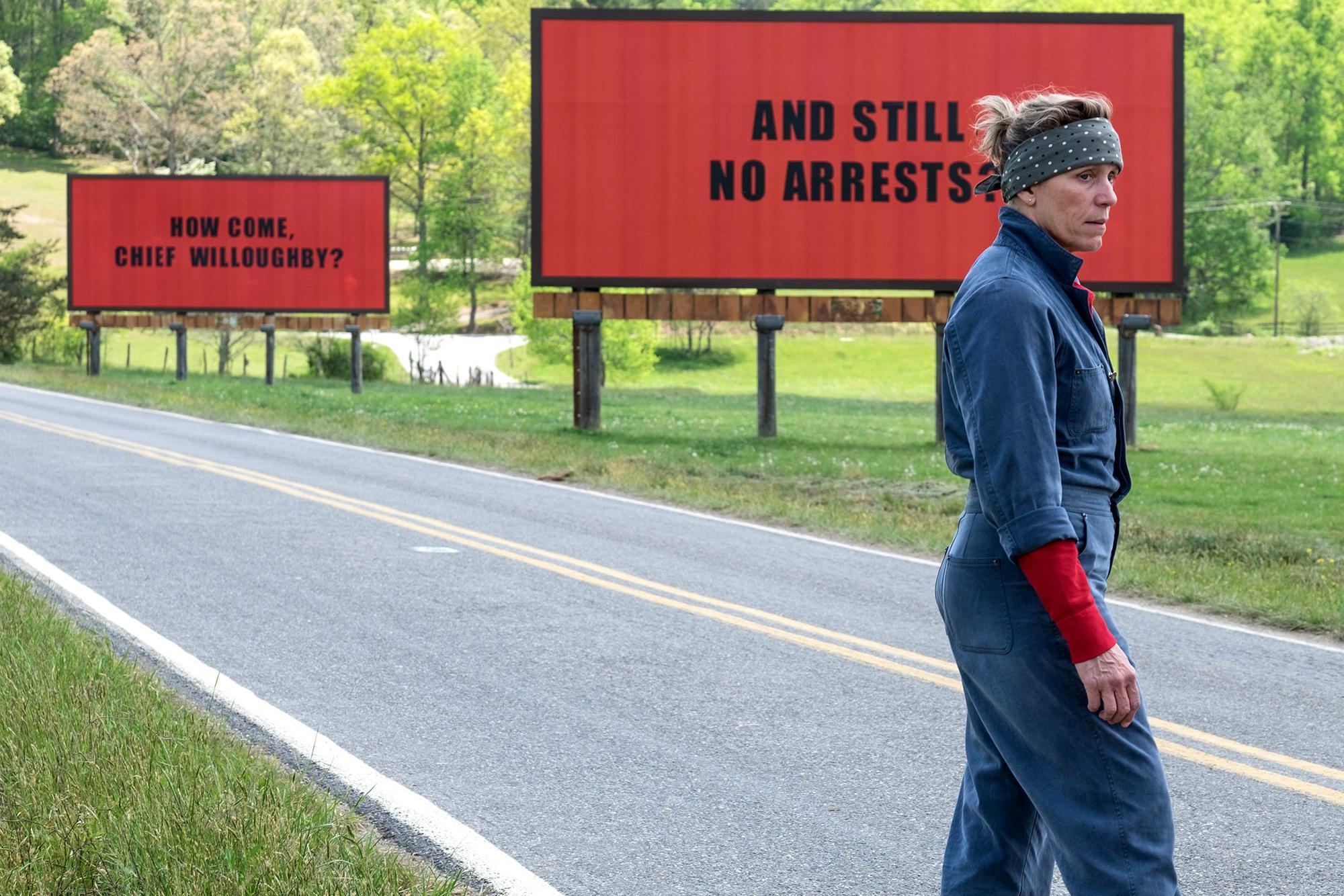Three Billboards Outside Ebbing, Missouri, Venice Film Festival review: A startling piece of work
McDonagh’s achievement here is to meld the horror and the comedy while dealing with the most primal emotions. He amuses and shocks us at the same time

Dir Martin McDonagh, 115 mins, starring: Frances McDormand, Woody Harrelson, Sam Rockwell
Three Billboards Outside Ebbing, Missouri is not going to win any awards for punchiest film title of the year but it’s a startling piece of work: a perverse, comic and tragic revenge story in which all the characters defy our often very low expectations of them.
Writer-director Martin McDonagh has a host of award-winning plays behind him but his movies haven’t always lived up to his stage work. This one certainly does. It shares some of the dark and nihilistic humour found in McDonagh’s previous film, Seven Psychopaths.
The key difference here, though, is that Three Billboards isn’t just a blood-soaked shaggy dog story. It is also surprisingly moving. McDonagh shows extraordinary inventiveness in spinning such a complex narrative from such a seemingly unpromising starting point – three abandoned billboards outside a small town in the Deep South.
Frances McDormand plays Mildred Hayes, a cussed gift shop owner whose daughter was raped and murdered. As the film starts, several months have passed since the crime and the police have made no progress whatsoever in tracking down the culprit. (In the opinion of Mildred and others, “they’re too busy torturing black folks” to do their job properly.) She therefore pays gawky local advertising executive Red (Caleb Landry Jones) to have gigantic posters hung on the billboards asking just why police chief Willoughby (Woody Harrelson) hasn’t yet made any arrests.
Early on, we think this is a case of a grief-stricken and vengeful parent taking on the racist white cops. In fact, the story is far more complicated than that. The police chief isn’t the small-town bigot that he first appears to be. His most violent and chaotic officer Dixon (Sam Rockwell), who lives with his ageing battleaxe of a mother, has hidden reserves of decency. Mildred is racked with guilt over the circumstances of her daughter’s death and isn’t above being a bit of a bully herself.

McDormand’s performance here stands alongside the Oscar-winning one she gave as the pregnant police officer in Fargo. She is superb as the stoical, strong-willed but vulnerable mother. Mildred isn’t just in search of vengeance. She is trying to make sense of an event so horrific that it defies any easy rationalisation.
Whenever her character risks becoming too introspective, there will be a flash of humour. We’ll see her ridiculing her abusive ex-husband and his jailbait-aged girlfriend with savage glee or cursing the photogenic news reporter who is always on hand to report on any new town scandal or misfortune.
Harrelson and Rockwell are also excellent. The former brings an unexpected tenderness to his role as the wise old police chief while the latter clowns around at first as if he is one of the Three Stooges but then develops a conscience. Almost everyone here suffers. Some characters are beaten up or burned to a near cinder. Some are bereaved. Others have terminal illnesses. People are intimidated. They lose their jobs and livelihoods.
McDonagh always manages to find the macabre humour in their plight. His frame of reference is huge. There are nods in the direction of Nic Roeg’s Don’t Look Now, gags based on rhyming slang and blasts of Abba on the soundtrack alongside scenes that could come from one of Walter Hill’s most hardboiled thrillers.
The film doesn’t console us with a glib denouement. Confusion reigns throughout and McDonagh shows us the very worst in human behaviour. With its lines about anger begetting anger and hatred feeding on itself, the film resembles a bleak Old Testament parable. The darkness, though, is partially leavened by the slapstick (much of it courtesy of Rockwell’s hapless young cop) or by scenes of Peter Dinklage’s character forlornly trying to woo Mildred.
There are hints, too, that all the characters are learning that forgiveness and reconciliation might be worthwhile concepts to explore. McDonagh’s achievement here is to meld the horror and the comedy while dealing with the most primal emotions. He amuses and shocks us at the same time. Three Billboards is the perfect advertisement for his talents.
Three Billboards Outside Ebbing, Missouri hits UK cinemas 12 January.
Join our commenting forum
Join thought-provoking conversations, follow other Independent readers and see their replies
Comments
Bookmark popover
Removed from bookmarks